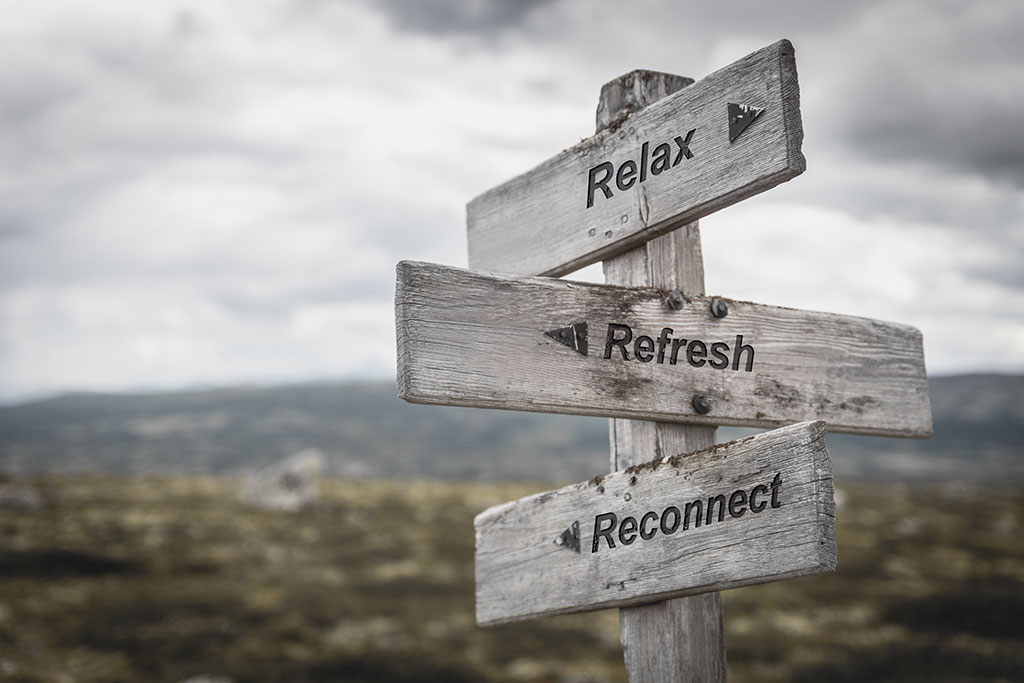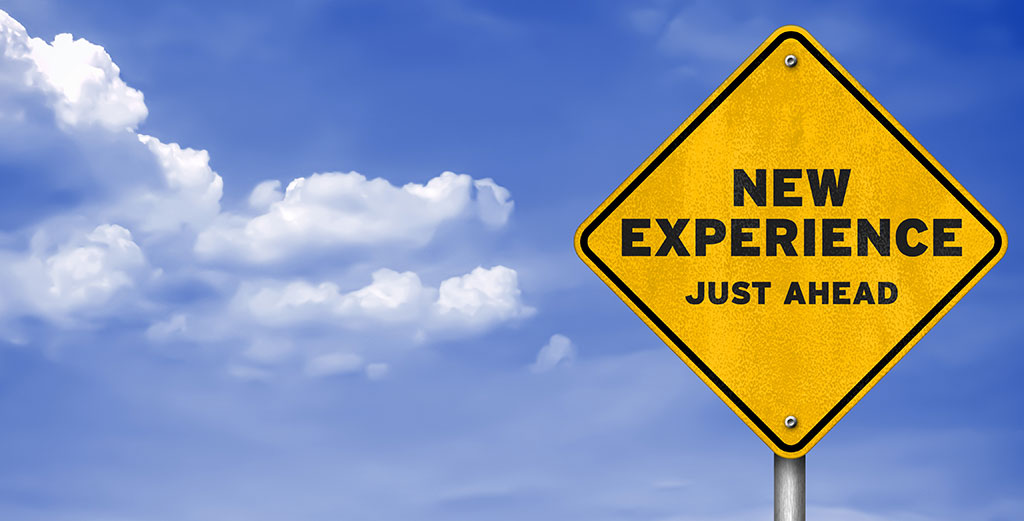Refresh Without the Digital Detox

Take Time to Refresh, Revisit, and Remind Self
How was your summer? How are your new year’s resolutions progressing?
Regardless of the year—and these last few have been trying for all of us—most will answer the above two questions with, “Fine,” and after a pause or sigh, “I’ve still got plenty of time before year end.”
Fact is, we all have good intentions [energy], aspirations [values], and plans [goals]—but life seems to have an uncanny ability to overwhelm us, leave little time to recharge our batteries, and put obstacles in front of our best laid plans. Sometimes our frustration—a function of unmet expectation of self or others—is an indirect result of how or who we spend our time with, and other times it’s a result of [circumstances] life events beyond our control [outside of our purview].
During these months it’s common to come across numerous suggestions: Summer Reading, Summer Retreats, and recently, Summer Detox. You read that right. Detox, typically referring to Digital; imploring, and pontificating to all of us to turn off our phones, TV’s, and social media. Granted, most of us could benefit by spending less time with these activities and more time on things that matter most—which includes self care.

Detox versus Refresh
It’s doubtful that many would consider themselves dependent on social media, regardless of the format, and feel the need for an abrupt or sudden withdrawal; moreover, it’s unreasonable to expect anyone—under the age of 55–to quit using their phone, computer, or TV cold-turkey.
Instead let’s consider a refresh—to make fresh again—of our energy, values, and goals. While we’re at it, let’s revisit how we set goals and remind ourselves about the power of small wins.
While Susan David, PhD used the phrase “The Power of Small Wins” in her book Emotional Agility, the phrase is attributed to Teresa M. Amabile and Steven J. Kramer, in their The Power of Small Wins (HBR) which focuses on their book, ‘The Progress Principle’.
“Of all the things that can boost inner work life, the most important is making progress in meaningful work.”
– Teresa M. Amabile and Steven J. Kramer,
The Power of Small Wins, HBR May 2011
To reinforce the above, consider the following from the popular book, Atomic Habits, “If you can get one percent better each day for one year, you’ll end up thirty-seven times better by the time you’re done… What starts as a small win… accumulates into something much more.”
The point here is, it’s much more effective to break down long-term goals into bite-size milestones that allow us to give ourselves credit for making progress in our busy lives; these small wins allow us to maintain our motivation and momentum, which builds our self-esteem (aka CoreSelf Respect).
How We Change—and Learn
One of the reasons that change is so difficult is that it requires us to leave a familiar and comfortable place, even if that place is not good for our emotional well-being.
Consider James Prochaska’s finding based on more than two decades of research, the TTM has found that individuals move through a series of stages—precontemplation (PC), contemplation (C), preparation (PR), action (A), and maintenance (M)—in the adoption of healthy behaviors or cessation of unhealthy ones (Prochaska & Velicer, 1997).
When you have read about the three stages before action—I have to ask—is it any wonder that many might choose to stay where they are, versus working toward a significant change? How many people are just trying to get through their week, thinking: “There must be a quick and easy way to improve this situation!”

Experiences and Experiments
Experience is derived from the Latin word experientia, which is equivalent to experient — which at a quick glance looks like experiment.
According to Lisa Feldman Barrett, author of How Emotions Are Made: The Secret Life of the Brain:
“If you change your current experiences today, you can change who you become tomorrow.”
Synonyms of ‘experience’ in American English:
- knowledge
- contact
- exposure
- familiarity
- involvement
- participation
- practice
- training
If we were to experiment with our experiences and add the word ‘new’ in front of any of the synonyms above—we could multiply the number and increase the depth of our experiences. Examples might include gaining knowledge by reading or listening to a new book for a few minutes each day; increasing exposure to a new language one word at a time; initiating a meditation practice; or beginning/ending your day with a reflection. Remember to start slowly, building on the new experience gradually; always give yourself credit for trying something outside your comfort zone.
The Power of Self-care and CoreSelf
There’s tremendous benefit in taking time to care for our own wellbeing—Getting on the Same Page with Ourselves—and making time for new experiences can be an effective and reliable “game changer.” We’ve shared a number of ideas here and have provided some examples to help you get started.
Studies have shown that when we slow down and take time for ourselves, our self awareness increases and we become more centered in all aspects of our lives, regardless of how busy the world encourages us to be. Moreover, as we build confidence through small accomplishments, we recognize over time that these small changes (aka wins) accumulate into significant movement toward where we want to be—closer to our long term goals.
Once we realize that new experiences refresh us with the curiosity that leads to novel perceptions and new accomplishments, we can explore methods for enjoying those places more often.
The authors have created an 8-step CoreSelf Mapping worksheet that will help you to efficiently and effectively Get on the Same Page with yourself and others by asking two simple questions that will help align your energy, values, and best next steps.
If you’ve found any of these ideas insightful or useful, we invite you to visit Insights and Real Questions page for additional resources. Contact us to speak with a CoreSelf Advisor today!
About the Authors
Jonathan Thomas, MSW
Whether at the potter's wheel, coaching medical professionals and teams, or in his private counseling practice, Jonathan Thomas has spent his life molding, shaping and creating something beautiful and new.
Tim Preston
As a successful serial-entrepreneur and angel investor, Tim Preston has spent the majority of his life learning, overcoming, and creating, from blank pieces of paper: self, spaces, teams, and businesses.
Together, Jonathan and Tim founded Simple. Not Easy., LLC, a company that developed CoreSelf Positioning™ tools to help companies and individuals to slow down and align energy levels, values, and actions in order to formulate their best next steps.
Learn more about Jonathan, Tim & CoreSelf Positioning.